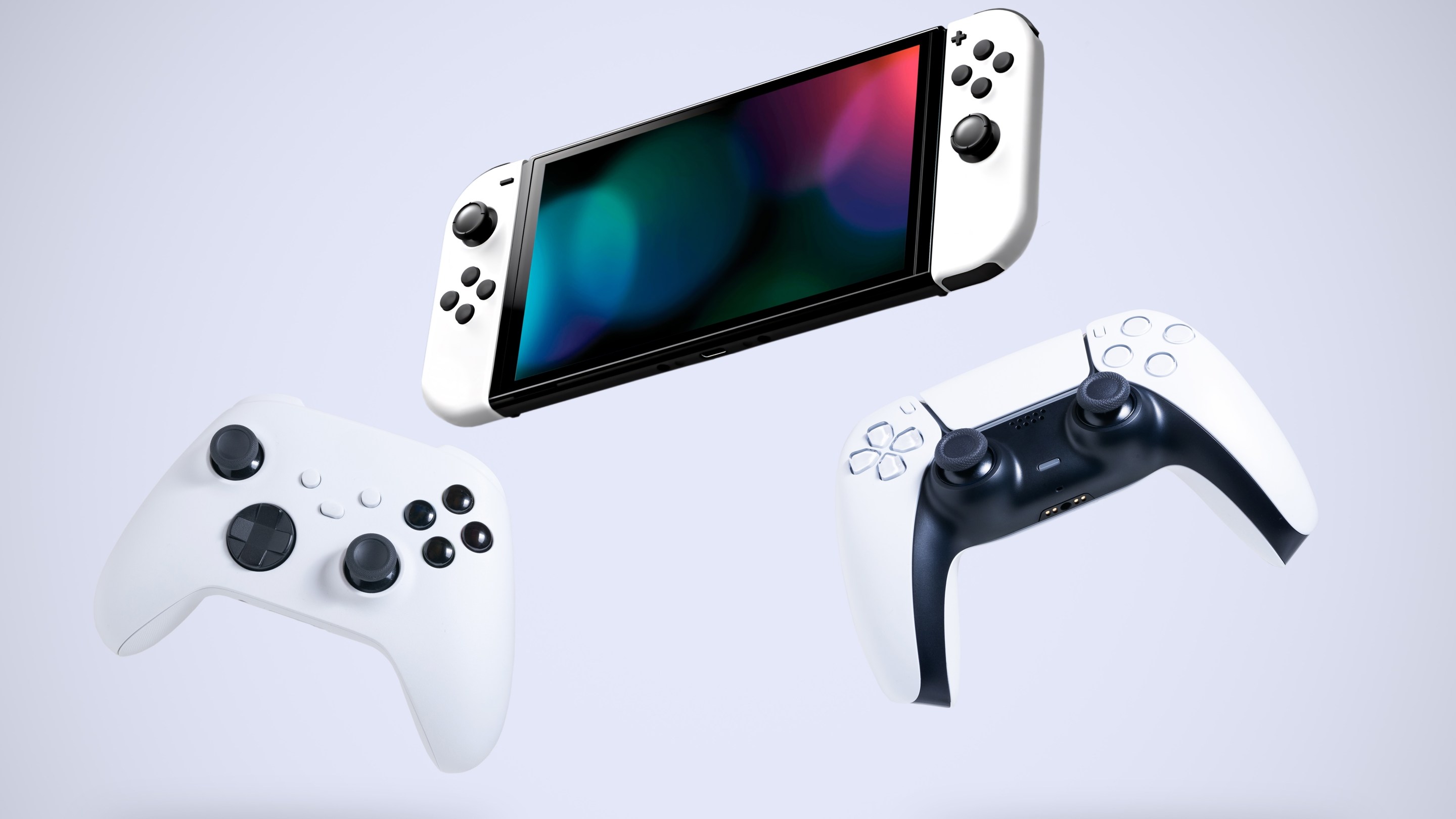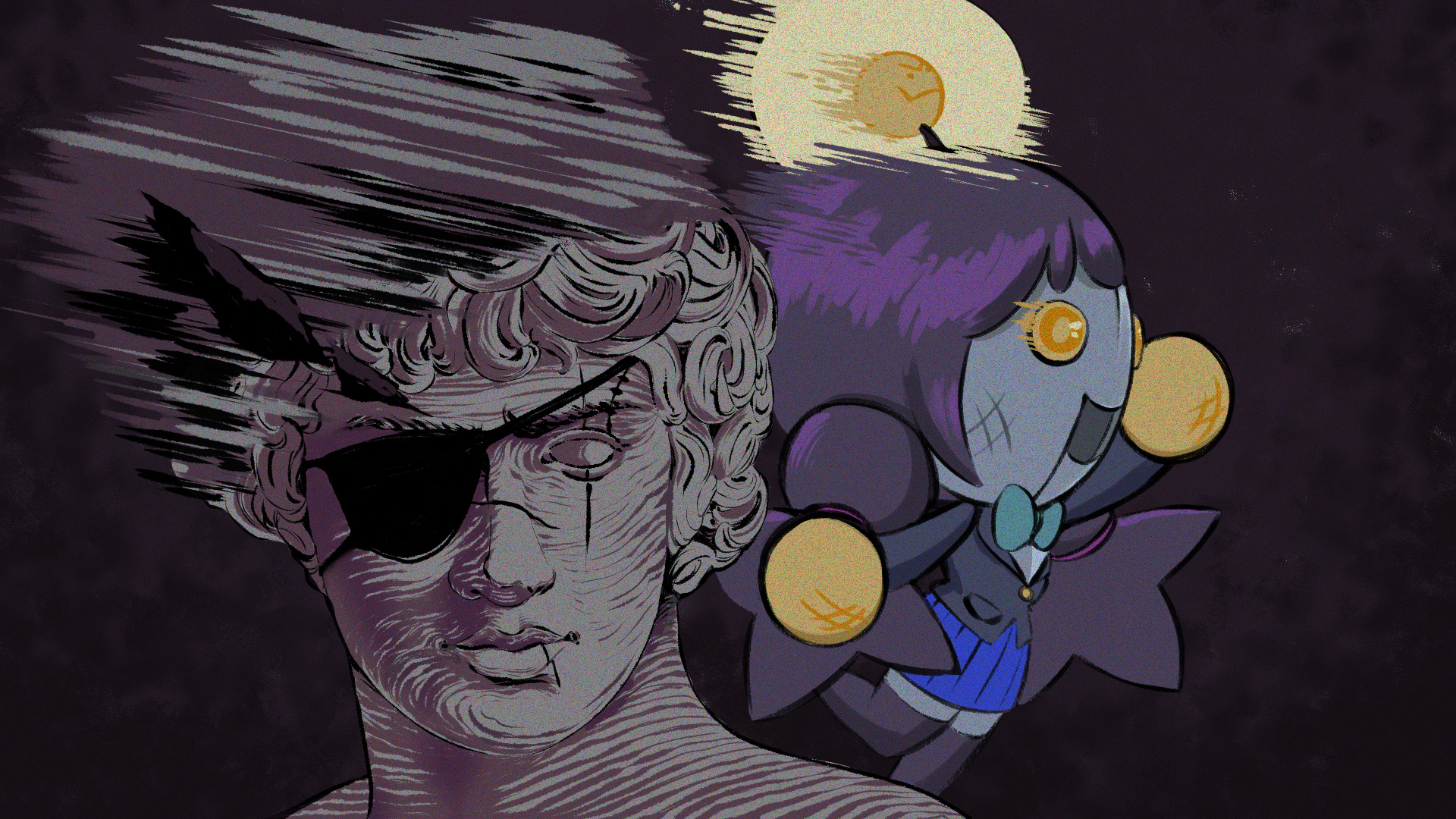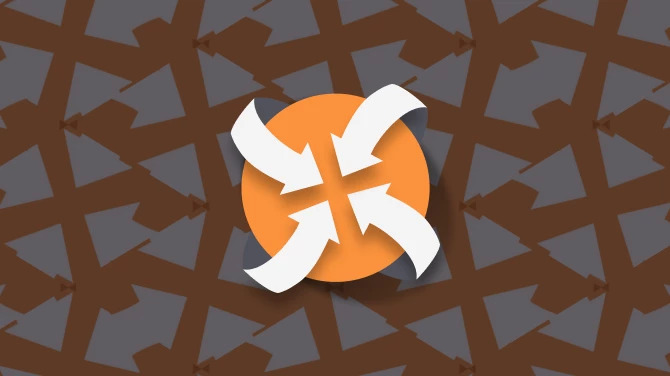The Nintendo Switch 2 is on the way, and the question on everybody's minds is how much it'll sell. It makes sense that its success matters to the press, business analysts, or anybody with a social media account: the Switch 2 feels like the only video game console left, the last effort of a product that, once at the core of a whole industry, is now slowly being phased out.
Yes, there are other consoles still on the market. We have the PlayStation 5, the Xbox Series X and S, and a host of handheld devices like the Steam Deck and retro emulation consoles. Sony launched a high-end version of the PS5 just last year along with a cloud streaming handheld, while Xbox is working on its own handheld. Video game hardware isn't going anywhere. As long as there are video games, people will make devices that can play them.
People will keep buying them too. I have every current-generation console in my home, and we will somehow obtain a Nintendo Switch 2 to squeeze into our entertainment center. I'll switch between my PC, Xbox Series S, and PS5, playing one of the hundreds of indies in my backlog with a mouse and keyboard on my PC before heading upstairs to truly enjoy Clair Obscur: Expedition's 33’s gorgeous graphics on the PS5. When I go to bed, I'll pull out my Razer Kishi controller and attach it to my phone to play something through Steam Link because I can't afford a Steam Deck.
I know this console-laden experience isn't universal. I live in a house with another video games journalist; we can justify buying consoles because we can write off these purchases on our taxes. But I wonder if this will be the last generation where we will get every new console. When friends who aren't in video games ask me about whether they should finally get an Xbox or a PlayStation, I often answer with a shrug. I tell them to spend more money and get a decent gaming PC, or get a Switch. Which device matters less in a world where video game consoles are being replaced by cloud streaming, subscription services, and a world where the console makers themselves have other interests.
They're too expensive
There's usually some sticker shock when a new video game console is revealed, but there was a lot of it when the Nintendo Switch 2's price was announced at $450. We all assumed it was going to be higher than the Switch 1's $300 price tag, but a $150 jump felt huge for a Nintendo console that, for the first time, didn't change much from its predecessor. The price also makes the Switch 2 more expensive than the cheapest Steam Deck, and only $50 cheaper than the base PS5 on sale right now.
That sticker shock only got worse thanks to the Trump administration, which announced its dreaded Liberation Day tariffs the same day the Switch 2 was announced. Nintendo understandably delayed U.S. preorders that same week, but that only made people more anxious for a potential price hike.
And that was before we started getting price hikes across the video game industry in response to the Trump administration's tariffs. In May, Microsoft announced that it was not only raising the prices of its consoles by up to $100, but that Xbox accessories and games were also about to be more expensive. Sony is also considering a price increase of its PS5 consoles, although it already raised the price in multiple regions this year and has been slowly increasing the cost of its accessories. Sony blamed the most recent price hikes on "high inflation and fluctuating exchange rates." Xbox just noted "market conditions and the rising cost of development."
The tariffs are a good short-term explanation for these price hikes, but they also come on top of just how poorly many of us seem to be doing financially. A new report recently revealed that most Americans can't afford basic costs of living, and wages have not kept up with inflation over decades. Beyond video games, things are just getting more expensive across the board, making the Switch 2's price tag more eye-popping for many people. Even if a $450 Switch 2 or an $80 game was an inevitability due to inflation and rising development budgets, them finally becoming a reality couldn't have come at a worse time.
But video game consoles have always been major purchases, and price has always been a huge factor in whether they sell. There are a lot of reasons why the PlayStation 4 "won" the war against the Xbox One at the start of its generation, but the major one was its price. Former Sony CEO Jack Tretton was able to go on stage, reveal that the PS4 would be $100 cheaper than the Xbox One, and drop the mic, knowing that the number would be enough to sway a whole lot of players.
Nintendo President Shuntaro Furukawa noted in a recent Q&A that he expects the Switch 2 to sell somewhat conservatively due to its high price (although Nintendo predicts it will still millions of units), and that the company will have to figure out new ways to keep it selling past launch, including software updates and selling game bundles. The company also seems to think that the Switch 2 justifies its price. In an interview with Polygon, Bill Trinen, vice president of player and product experience at Nintendo, said that the tariffs and inflation weren't the only factors in the console's price; it has some hardware upgrades, like mouse controls, that "add more value."
All the economic turmoil isn't ultimately going to matter to Nintendo; regardless of price, the anticipation of a new Nintendo console after eight years is plenty to sell this thing. But there's also the fact that this is a Nintendo console--there's brand recognition and loyalty there, but there's also the promise that you'll get Nintendo games like the new Mario Kart World and eventually something like a new Zelda. It's the only console left where exclusivity really matters.
How can hardware matter when software is king
Years ago, I wrote that this console generation wouldn't be defined by stunning graphics, hardware improvements, or teraflops; it's about services. While Xbox kicked off the current generation's marketing cycle with a tech demo for Senua's Saga: Hellblade 2, its priorities have since shifted to Xbox Game Pass and Cloud Gaming. Technology gains have stagnated considerably, to the point where Sony and Microsoft couldn't tout photorealistic graphics or processing power as much as they could with previous generations. There has to be something else.
Microsoft has decided that Xbox isn't just your console anymore, it's "Xbox Everywhere." You don't even need an Xbox console to play these days. All you need is the app, which now works on things like your Fire TV or through a browser on your mobile device. It's not a perfect experience by any means; latency is still terrible when you play through Cloud Gaming, but that doesn't matter too much unless you're playing an online multiplayer game. Before I canceled my Game Pass subscription, I was able to play Indiana Jones and the Great Circle on my phone while I was at my parents' place over the holidays. There were some frame rate drops and lag, but it was good enough.
Sony's subscription service PlayStation Plus isn't as high profile as Xbox's, but it's about as robust, with multiple tiers of new and classic games that change up every month. If you pay for the PlayStation Premium tier, you also get cloud streaming, which, combined with a handheld like the PlayStation Portal, means you're on the way to playing PlayStation games sans PS5.
Even beyond subscriptions, the money is in the games themselves. As Xbox head Phil Spencer told The Verge, "the software part of the business is an easier part of the business to grow and scale." There's a reason Xbox has been building its stable of first-party studios, alongside ones it’s acquired like ZeniMax and Activision Blizzard. Xbox was particularly excited about solidly entering mobile thanks to Candy Crush Saga maker King, and after dealing with a potential Call of Duty exclusivity battle with Sony, started using the "everywhere" messaging once the acquisition was complete. Why care about selling a fancy box when you can sell multiple games per year across platforms, along with a subscription to, as Xbox says, "wherever [players] play?"
This move has been controversial, to say the least, among Xbox fanboys. As annoying as the exclusivity discourse has been over the past couple decades and how these console manufacturers have capitalized on it, it is one of the key factors that goes into figuring out which console to buy. Do you have brand loyalty to Xbox because of Halo, or are you more into the single-player experiences you'd get from Sony’s God of War? Or are you just going to keep playing Pokémon games until the end of time? That might be the only thing that sways your buying decision.
But we’ve finally been seeing the end of exclusivity and arbitrary tribalism as a marketing tactic. Xbox has started putting many of its first-party titles onto other platforms like PlayStation. It started with smaller titles like Hi-Fi Rush, but Indiana Jones and the Great Circle and Forza Horizon 5 are giant exclusive releases that are now on PS5. You don't need a PS5 to play PlayStation Studios exclusives anymore either, as they increasingly head to PC or sometimes even launch on both platforms simultaneously, as was the case with Helldivers 2 and Concord (RIP). It's even more streamlined for Xbox, where first-party titles always launch on both console and PC. By some accounts, this tactic has not hurt Xbox's bottom line. Xbox games are doing extremely well on the PlayStation Store, and why wouldn't they? Xbox is offering critically acclaimed games to even more people. Of course they’re going to sell.
The only place where exclusivity still matters is Nintendo. You will never be able to play the new Mario Party on your PC (minus any means that will get you sued into oblivion), and there's no way Metroid Prime 4 will ever make its way to Xbox.
So as long as you're willing to wait, you can play most of a given year's big games on just one device and a Switch.
There are too many console alternatives
Long before Xbox decided to put Game Pass on your phone or sell its games elsewhere, there were so many games on so many different platforms that you didn’t need a console much at all. You might not be able to play the specific game you want anywhere, but you can play something anywhere.
For one, there's your smartphone, which most people have. Despite how many people view mobile gaming as a world of free-to-play, microtransaction-laden slop (it's not, for the record), that market is gigantic. It's particularly huge in Asian markets, which can be attributed to a lot of factors — China banning consoles in the early 2000s, which allowed PC and eventually mobile gaming to flourish, and smartphones offering a lower-cost way to play games, as a start. All you need is a decent internet connection and you can start downloading games.
Then, there's PC. Despite the fact that PCs and PC parts are being hit with a lot of the same manufacturing and price issues as consoles, PC gaming seems to be doing better overall than console. In a presentation that went a little viral among the press and business types earlier this year, Matthew Ball shows that the amount of games on PC has been growing since 2011, spurred on in part by console shortages during the pandemic and just more releases overall. This doesn't tell the full story, since firms like Newzoo see PC leveling off but consoles continuing to decline, but Ball’s presentation makes the good point that PCs just have more utility.
Think about the PC as a multi-use device versus a console, which can only really be used for playing video games and watching media. While Steam dominates the PC distribution market, there are smaller storefronts like Epic, GOG, itch.io and more that add to the possible games you can play on PC. Why buy a separate box for playing games when you can access just about every game you could want to play on a device you also use for work?
Alongside PC comes handheld consoles, which allow you to specifically play PC games on the go. The Steam Deck continues to be at the top of the pack despite competition from Windows handhelds like Asus and Lenovo thanks to reasonable prices for the lower tier models and how much better SteamOS runs on a handheld than Windows. When you combine that with cloud streaming from Xbox and PC ports from Sony, Nintendo is still the only one of the Big Three that provides a reason for you to get its console. It's the thing that makes it "unique" in a multibillion-dollar industry.
Consoles don't have much time left
Video game consoles still have their place in our ecosystem, the biggest being that it's the easiest, most cost efficient way to play a lot of games. Sure, having a PC can streamline everything in your life beyond games, but if you want to just plug in a box and play a game with its expected quality and performance, then a console is the way to go. PCs are also getting more expensive thanks to inflation and tariffs, so I don't expect somebody's going to spend a couple thousand dollars on a computer if they can do what they want on a $500 console.
But consoles were dying long before tariffs came along to threaten the entire industry. With companies now relying on software and services rather than hardware and new products coming on the scene to fill a need consoles can't, it's no surprise that manufacturers seem to be moving away from them. Nintendo of course hasn't, but once the Switch 2 launch comes and goes, we'll see for sure what the console market really looks like.
Part of that future seems to be console-makers pegging their hopes on Grand Theft Auto 6, a troubling indication of where we're at in 2025, when instead of marketing new technology or ecosystems to sell consoles, companies are looking at one game as the future. Meanwhile, Xbox and PlayStation are hoping you'll buy their games wherever you already are, instead of on their machines. The only standout is Nintendo, which is hoping you'll buy its console and its games, because you can’t have one without the other.
The video game industry has long been defined by machines. There have been console wars, infighting, countless articles on whether you should buy an Xbox or a PlayStation. Companies have risen and fallen on whether they can compete with the Big Three or if they chose one console over another for a game launch. There are people who have, for better or worse, based parts of their personalities on which company they like best. Many of us have to budget every few years to get a new machine to play new games. This is how it's been for decades, but that status quo is about to change.
I can't stress enough how much the Switch 2 is going to sell. There will be millions of Switch 2s shipped and likely shortages at most major retailers. People will complain about the price but still get the more expensive Mario Kart World bundle. But after that? We're in uncharted territory, likely one where consoles as we knew them are dead. That's going to change how we play games, whether we want it to or not.







